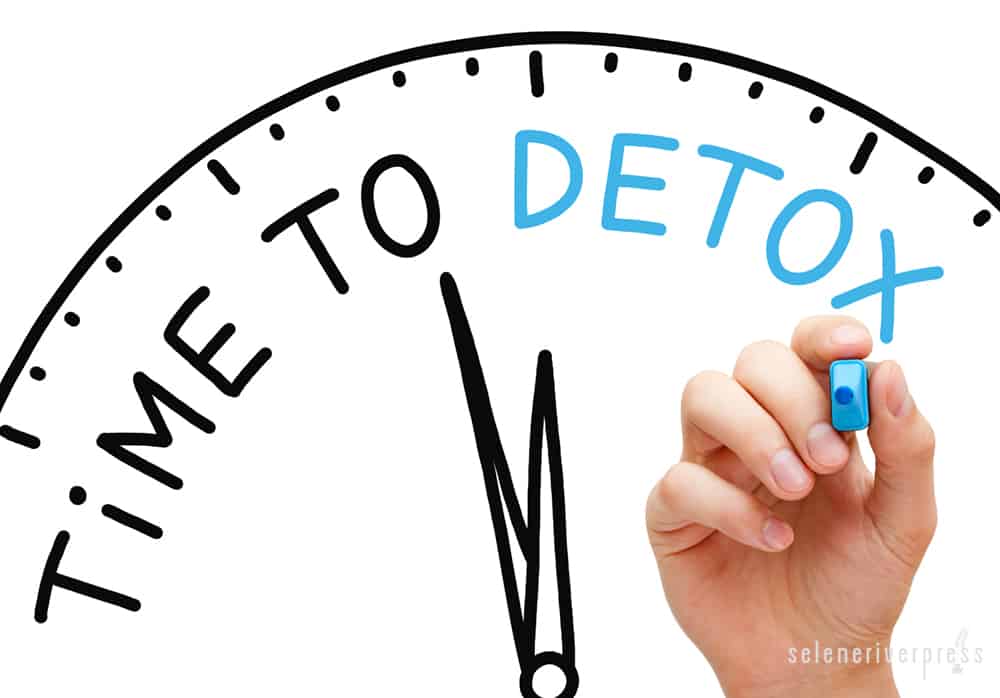Why detox? Research suggests that many health problems are associated with prolonged exposure to various toxins in our environment, which can overburden our system and result in “dis-ease” or feelings of un-wellness.
Who should detox? Everyone! All of our bodies produce toxins during the process of digestion and elimination, and when we fight infection and deal with stress. The good news is that the liver, kidneys, skin, and lymphatic system help our bodies detoxify naturally. However, because we’re all exposed to toxins in the food we eat, the water we drink, and the air we breathe, our systems can become overburdened. And when we can no longer keep up with the toxic load, it can result in illness.
If you’re experiencing any of the following, a detox might be the perfect beginning to regaining balance:
- Fatigue
- Muscle aches and/or joint pain
- Sinus congestion
- Headaches
- Bloating, gas, diarrhea, or constipation
- Sleep problems
- Difficulty concentrating
- Food cravings
- Skin rashes
- Difficulty losing weight
- Anxiety, depression, or PMS
- Food allergies or sensitivities
Side Effects of Detoxing
Some people experience withdrawal-type symptoms from the sudden elimination of processed foods, including the chemicals they contain. When the body begins to mobilize and eliminate these toxins, some people experience headaches, irritability, nausea, fatigue, chills, or flu-like symptoms, but the discomfort usually subsides within a few days. Other people don’t experience these symptoms at all. If you’re in the former group, talk with your practitioner. Avoiding or alleviating withdrawal symptoms is one reason why I believe it’s best to go low and slow rather than push the body beyond its capacity.
Preparation for Detoxifying Your Body
I find that the detox goes easier for my patients if they prepare ahead of time in the following ways:
- Eat organic vegetables and hormone/antibiotic-free meats and fish two weeks prior to beginning detoxification.
- Reduce food portion sizes by 30–40 percent, and eat low-volume meals with more frequency.
- Drink 1½ liters filtered water per day to avoid dehydration.
- Eat onions and garlic to assist in the elimination of intestinal pathogens and improve gastrointestinal and liver health.
- Eliminate foods that contain hydrogenated fats, partially hydrogenated fats, trans fats, sucrose, fructose, corn syrup, aspartame, and sugar.
- Increase consumption of foods that support the liver, including dark leafy greens (kale, Swiss chard, turnip and beet greens, spinach), broccoli, cauliflower, garlic, onions, lemon, lemon water, and beets, to name a few.
- Sweat daily through infrared sauna, steam, exercise, and hot Epsom salt baths to help move toxins more efficiently from the body. Be very aware of replacing lost electrolytes after profuse sweating. Use Celtic or Himalayan sea salt liberally on food and drink low-sugar coconut water and adequate amounts of filtered water for your body weight.
- Begin to get the bowels moving every day with a high-fiber diet and supplements if needed.
- Start reducing your intake or exposure to stimulants such as caffeine, nicotine, sedatives, and drugs, and try to reduce alcohol intake. Never change medications without talking to your doctor.
- Use mindfulness and awareness to note your emotions and where you feel them in your body. This practice is crucial to reducing stress and allowing the body to heal—and you can see the benefits with only ten minutes per day.
Depending on your symptoms, genetic predispositions, and environmental exposures, you may need different levels of nutrients and types of treatment. But remember, you must support your body in ridding itself of toxins, and learn how to optimize your own detoxification system, in order to create optimal wellness.
If you’re interested in taking part in a group or individual detoxification program, please call Nicole Eckman, RDN, CLT, at (970) 281-5620, or email her at Nicole@enlightenmentnutrition.com.
Image from iStock/IvelinRadkov.


